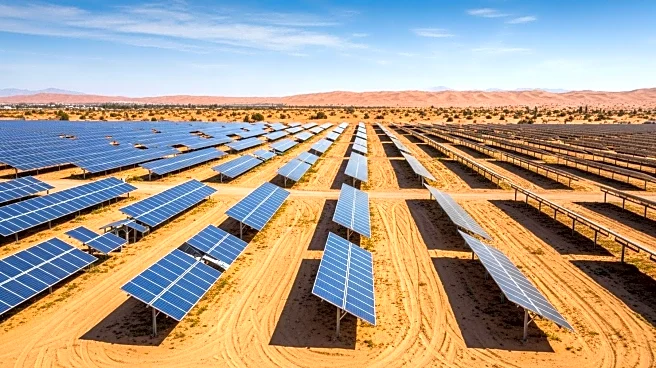What's Happening?
Recent studies in China's deserts reveal that solar panels are causing significant microclimate shifts, affecting soil, plants, and microbial communities. Research conducted in Qinghai and Gansu indicates that solar farms can enhance vegetation cover and soil moisture by blocking direct sunlight, which cools the surface and reduces evaporation. These changes have led to improved soil properties and plant/microbial communities within solar parks compared to surrounding desert areas. However, scientists caution that these ecological benefits are context-specific and may not be permanent.
Why It's Important?
The findings highlight the potential for solar farms to serve as both power stations and land stewards, promoting ecological recovery in arid regions. This dual role could enhance the sustainability of renewable energy projects, offering a model for integrating environmental considerations into energy production. However, the long-term impact of these changes remains uncertain, and continued monitoring is necessary to understand the full ecological implications. The research underscores the importance of thoughtful design and adaptive management in maximizing the benefits of solar installations.
What's Next?
Questions remain about the persistence of greener patches and the potential for unintended effects beyond the solar park's footprint. Scientists stress the need for ongoing monitoring to track ecological impacts over time. The success of solar farms in promoting ecological recovery will depend on design factors such as panel spacing, row orientation, and site climate. Collaborative efforts between researchers, energy companies, and environmental groups could help optimize solar farm designs for both energy production and ecological benefits.
Beyond the Headlines
The research suggests that solar farms can contribute to ecosystem restoration, but the benefits are highly dependent on local conditions. Factors such as heat, wind, and water movement at ground level play a crucial role in shaping the ecological outcomes of solar installations. The study highlights the need for a nuanced approach to renewable energy development, considering both the environmental and energy production aspects.











